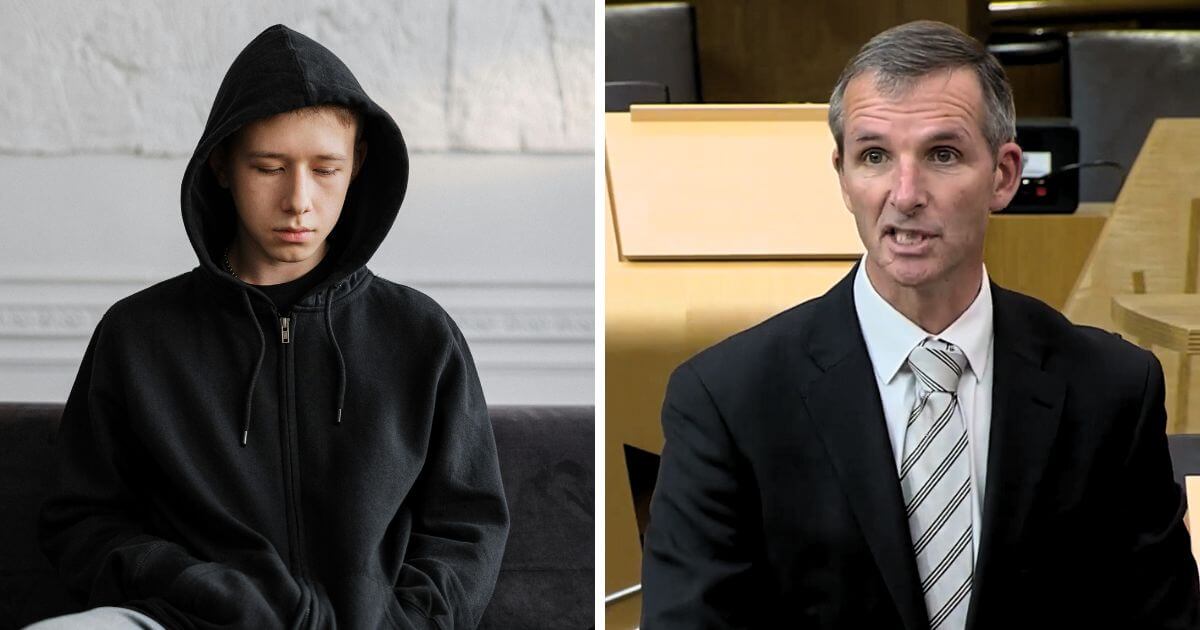Liam McArthur’s decision to raise the minimum age to access assisted suicide in the Scottish legislation from 16 to 18 has been branded “a last ditch effort to save the Bill” as reports emerged that support for his assisted suicide Bill is slipping away.
According to The Sunday Times, McArthur was told by several MSPs that they would only give the Assisted Dying for Terminally Ill Adults (Scotland) Bill their support if he raised the minimum age from 16 to 18. One of the Bill’s supporters described the raising of the minimum age as a “tactical retreat”, used by McArthur to ensure his Bill passed, and he would be prepared to make “other changes if required to get it through”. The unnamed parliamentarian said “The age thing was always there to be traded, a tactical retreat. Most of the detail is resolvable, and there will be other changes if required to get it through”.
Former Associate Professor of Bioethics at St Mary’s University, London, Dr Trevor Stammers, condemned this move, writing “Trading with the lives of teenagers does not commend the Bill”. Stammers also described this change to the Bill as “a last ditch effort to save the Bill” and said the offer of assisted suicide was “a chilling prospect at either age [16 or 18]”.
“Supporters of the assisted dying Bill are panicking”
Critics said the move suggested a feeling of panic amongst McArthur and his team. Scottish Conservative Councillor James Bundy said “Supporters of the assisted dying Bill are panicking – raising the age from 16 to 18 won’t fix the risks, it just proves them. This Bill is flawed, unsafe, and open to legal challenge. MSPs must vote it down at Stage 1”. A spokesman for campaign group Care Not Killing commented that the age limit raise “smells of panic as support for the assisted suicide bill crumbles even more”.
Last year, Scottish First Minister John Swinney shared “significant” concerns about teenagers as young as 16 and 17 being able to end their lives under the Bill, saying“An age threshold of 16 is for me a significant issue”. Steve Johnson, assistant chief constable of Police Scotland, also pointed out that the United Nations Convention on the Rights of the Child was “fairly clear and unambiguous” that childhood ended at the age of 18, and a 16-year-old age limit “is not consistent with lots of other pieces of legislation in Scotland”.
The decision to raise the age limit comes as reports emerged that support for the Bill is “slowly seeping away” along with a “growing nervousness”, due to a lack of clarity in key elements of the Bill. As of the beginning of this week, no members of First Minister John Swinney’s Cabinet have given the Bill their public backing, whilst columnist Alex Massie said McArthur’s “unclear” Bill “is not ready to become law”.
A large number of major flaws with the Bill
It also follows a report by Scotland’s Health, Social Care and Sport Committee, which directly identified significant flaws with the Bill.
One area of contention is the definition of terminal illness, which the Bill itself defines loosely, saying that it applies in cases in which someone has an “advanced and progressive disease, illness or condition from which they are unable to recover and that can reasonably be expected to cause their premature death”.
Under the Bill, anyone with a terminal condition that could foreseeably end their lives, even many decades in the future, would qualify for an assisted death, including those with conditions such as anorexia, Down’s syndrome, and people with disabilities.
Pam Duncan-Glancy, MSP for Glasgow, the first permanent wheelchair user in the Scottish Parliament, said “This report confirms what disabled people like me have warned all along: that once a line is crossed, it is incredibly difficult to stop that line moving. Make no mistake, this bill as drafted is very broadly drawn, it does not set a timescale on the definition of terminally ill, merely that someone must have a condition which could end in their premature death”.
“This is already worryingly wide but added to this, is the very real risk, identified by the committee, that this Bill could open the door to far wider interpretations – and it puts disabled people at unacceptable risk”.
“It would be a disaster to legalise assisted suicide”
James Bundy urged MSPs to vote against the Bill, saying “Assisted Dying can never be introduced safely. Once the door is cracked open, attempts are always made to further eligibility, putting the most vulnerable at risk. MSPs, Don’t Risk It. Vote against this Bill”.
Spokesperson for Right To Life UK, Catherine Robinson, said “The decision to raise the minimum age to access assisted suicide in McArthur’s dangerous Bill from 16 to 18 does not change the fact that it remains full of flaws and inadequate safeguards. Terminal illness is defined very loosely, and the most vulnerable will be the ones who are most at risk”.
“As voting takes place very soon, on 13 May, it is vital that all MSPs understand the depth of concern that people have about this Bill. Most importantly, they need to know many voters are deeply concerned about the effects of the Bill on the most vulnerable people in our communities. They do not want to see this extreme and unwarranted change to the law in Scotland”.
“It would be a disaster to legalise assisted suicide, and we urge MSPs in the strongest possible terms to vote against this Bill”.
“People in Scotland need support, not suicide”.












